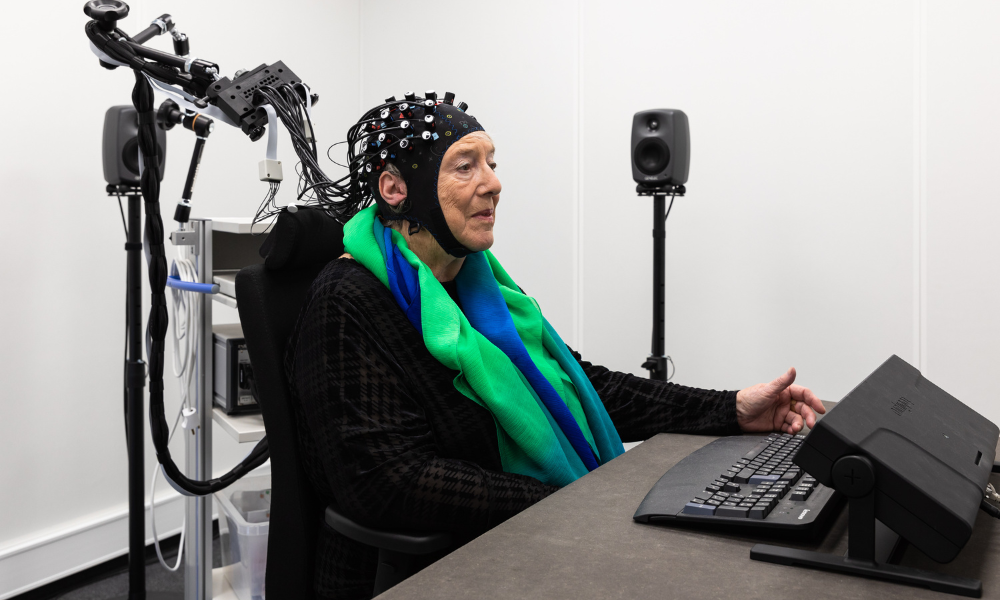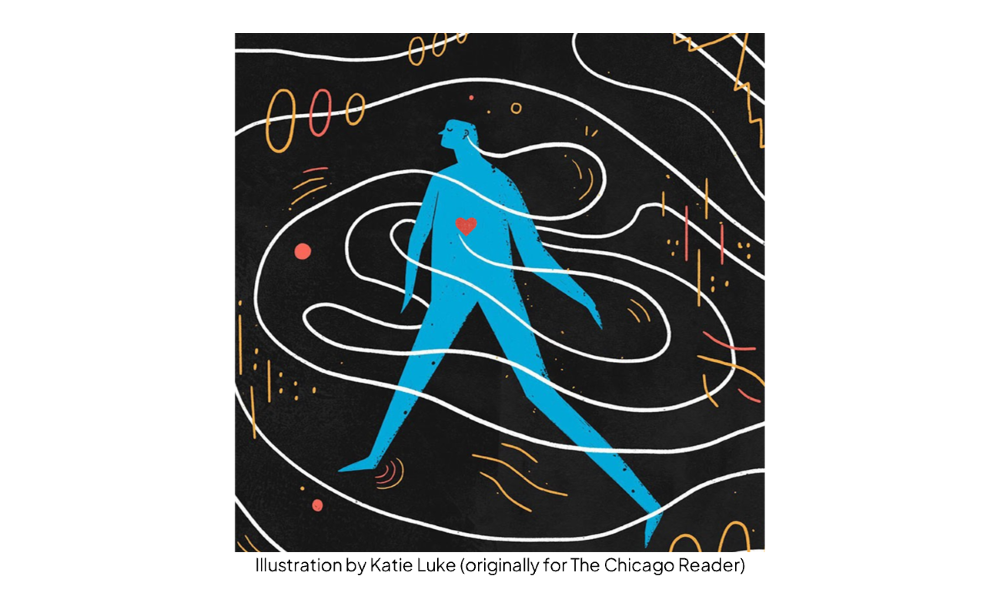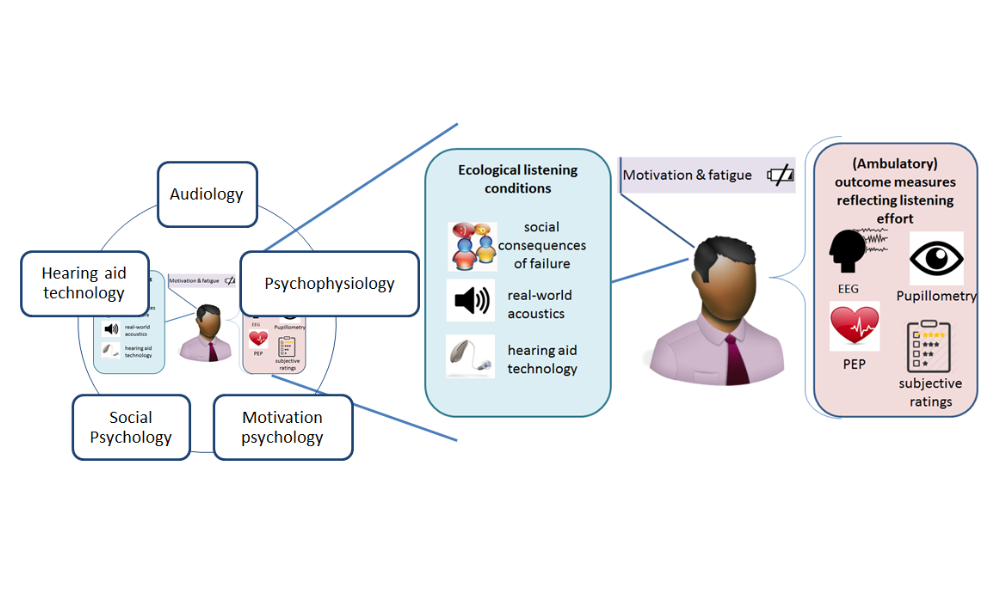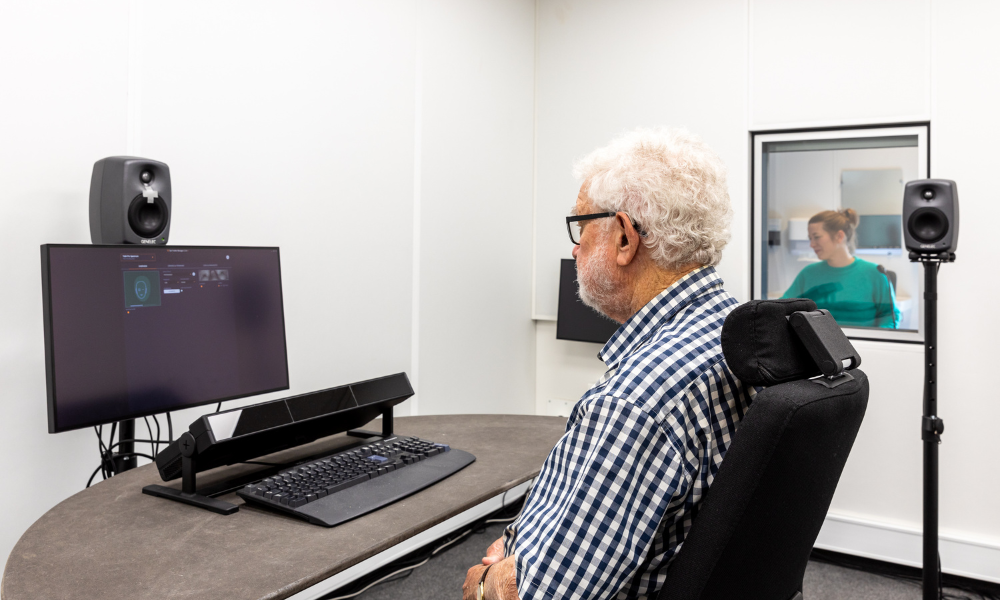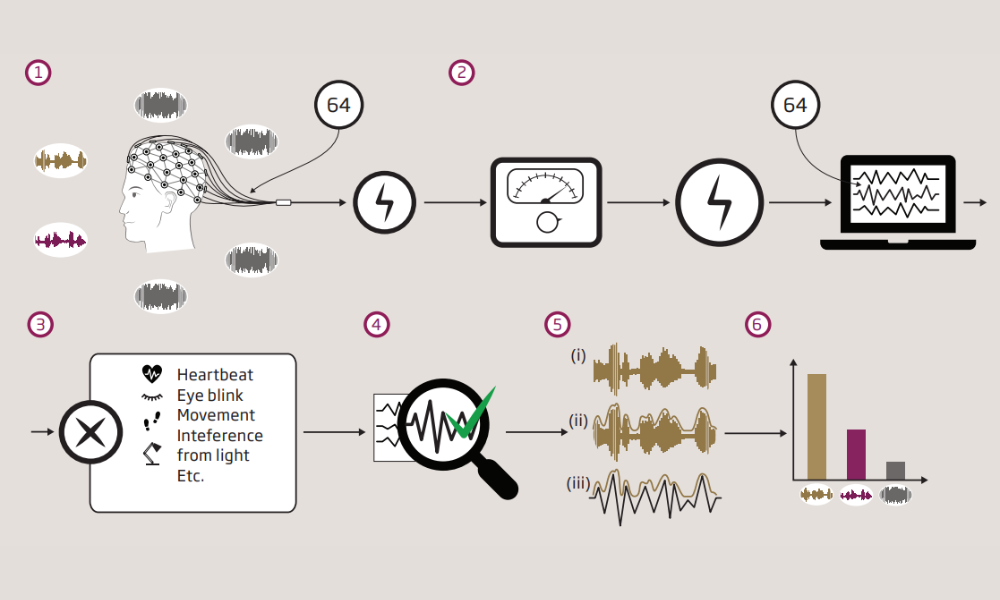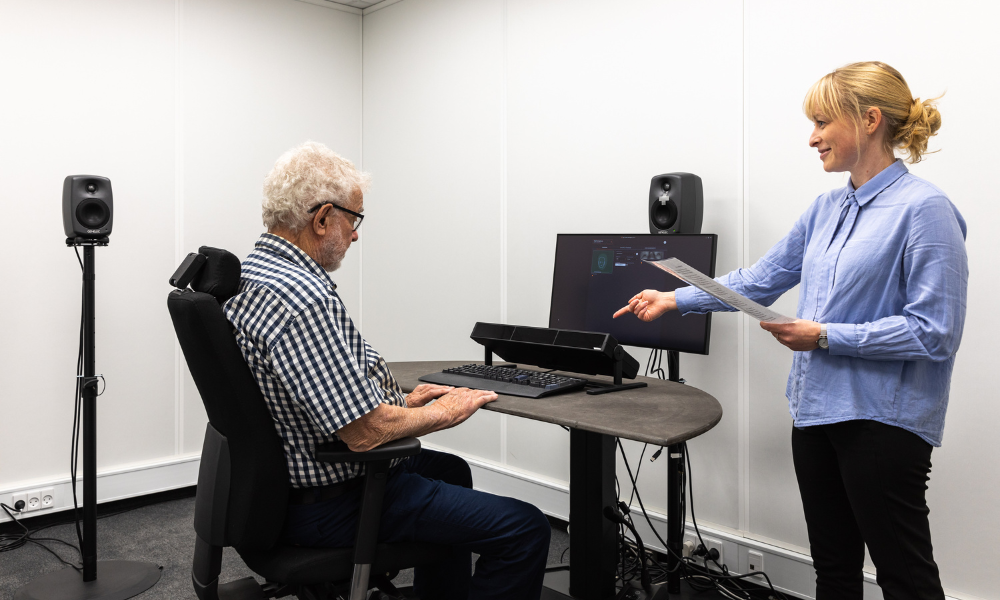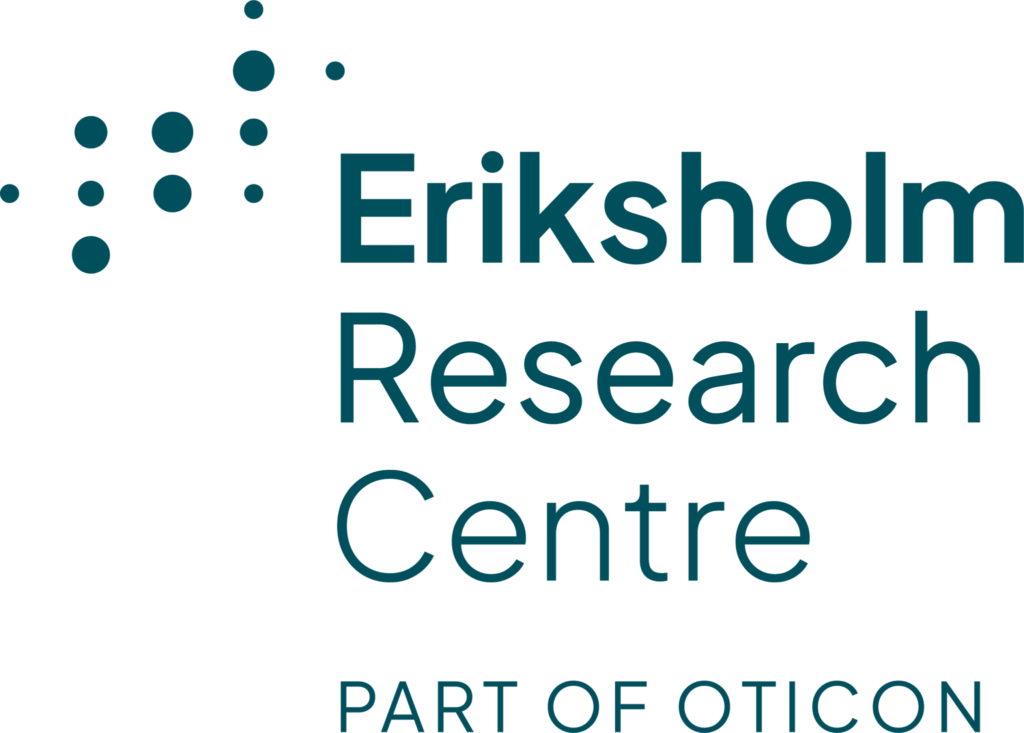Introduction
Hearing loss can have significant consequences beyond a reduction in audibility. For example, greater levels of fatigue are often experienced by people with hearing loss which is supposed to result from a greater drain of cognitive resources while listening. Furthermore, many hearing aid users report that they find it tiring and often difficult to listen for a whole day, despite a well-fitting hearing aid that ensures sound levels are comfortable and speech is easy to understand. Even though listening fatigue is a potential risk factor for predicting (mis)use of hearing aids, social isolation, and unhealthy ageing, there are no sufficient methods to assess listening-related fatigue in the hearing aid user’s everyday life. This project aims to assess and predict listening-related fatigue as it is experienced in everyday life of hearing–aid users.
Aims
This project will advance our understanding of listening fatigue as it occurs in the real world, develop a predictive model of the experience of fatigue states, and suggest ways to mitigate fatigue in hearing-aid users. More specifically, this project will:
1) Identify and compare markers of listening-related fatigue in laboratory settings as well as in real life and document the conditions under which fatigue is found in everyday life.
2) Establish the measurement validity of different markers within individuals and investigate how intervention with HAs affects listening-related fatigue.
3) Extend an existing computational model for predicting different states of cognitive fatigue from laboratory assessments to listening-related fatigue and investigate the causal influence of daily-life listening-related fatigue on general stress.
In the project, work is carried out in parallel with field and laboratory studies, which are brought together in a common experimental framework. The latter must determine behavioral and physiological measures that are sensitive to changes in listening-related stress and fatigue.
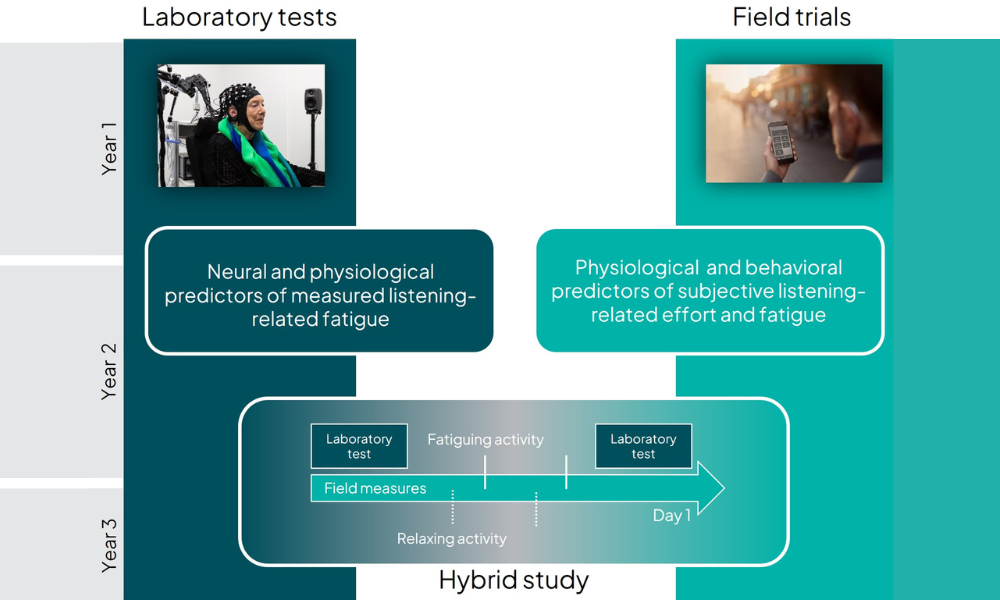
Methodology
Several studies will be performed both in laboratory settings to examine listening-related fatigue under controlled conditions as well as field settings to identify markers and self-reports of fatigue in the daily-life. Both settings will use common tests, methodologies and similar equipment and overlapping pools of participants, with functional Near-Infrared Spectroscopy (fNIRS), which is a noninvasive optical imaging technique, and pupillometry added in the lab study. Based on the outcomes of those studies, a hybrid setup will be design and carried out that combines laboratory and field assessment of listening-related fatigue. Furthermore, epidemiological methods will be applied to investigate the strength of the causal influence of real-life listening conditions on general stress and specific listening-related fatigue.





